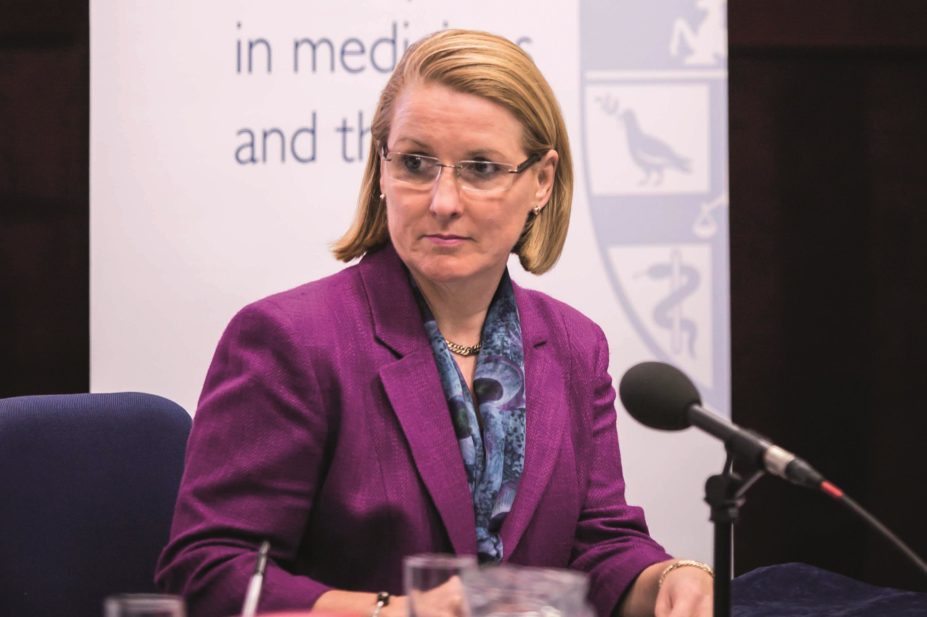
Tuesday 14 January 2014 was a red letter day for pharmacy.
It was the beginning of the journey for pharmacists to fully engage in patient care by gaining full read and write access to the patient health record.
Representing the English Pharmacy Board in the House of Commons, I was delighted to hear health secretary Jeremy Hunt confirm that community pharmacists would be given read access to the summary care record in 2015. In June 2015, after a successful pilot, the roll out to community pharmacies was confirmed by health minister Alistair Burt. Before that day, sharing the summary care record with community pharmacy seemed years away; now it is a reality.
Until pharmacists can populate the patient record, we continue to work in silos, denying our fellow healthcare professionals information provided in the pharmacy
However, until pharmacists can populate the patient record, we continue to work in silos, denying our fellow healthcare professionals information provided in the pharmacy.
During medicines use review consultations, patients often provide information on diet, exercise, smoking, alcohol intake, sexual health and even mental health concerns. After a new medicine service consultation, important compliance and side effect data are generated. For other pharmacy services, such as weight management and flu vaccinations, biometric data are captured. These should be shared with GP and nursing colleagues, minimising duplication and maximising value for the NHS.
Even more important is the management of repeat medicines for long-term conditions. I was astounded to learn that ‘not dispensed’ items information is not automatically fed back to GPs. This feedback loop is vitally important in monitoring patient well-being and compliance, and for identifying excessive use and waste. Interoperability is a current challenge between our systems, but with write access this would no longer be an issue.
Not only this, but transfer of care is also important. So much time is wasted phoning and faxing hospitals and surgeries to check which medication a patient is still taking or has started taking. Invariably, the pharmacy has no notification of the changes. An electronic copy of the discharge sheet on the patient record shared with the surgery, pharmacy and patient has to be the way forward.
A recent off licence controlled drug query took three days to resolve, even though the pharmacy attempted to contact the GP twice daily. The patient visited the pharmacy daily, complaining about our inefficiency. Fortunately, the GP contacted the patient directly to confirm our helpfulness, but this would have been much easier and efficient with access to patients’ records.
Write access will not bring utopia overnight. Challenges such as legal liability, if information is not accessed by the pharmacist or if information is not appropriately shared, will arise
Write access will not bring utopia overnight. Challenges such as legal liability, if information is not accessed by the pharmacist or if information is not appropriately shared, will arise. This will undoubtedly change the way we practice and could be more time consuming.
But next time an elderly patient comes into the pharmacy and says “I’ve run out of my little white heart pills”, instead of having to somehow identify the medicine, you’ll be able to access their patient record (with consent), confirm the medication, order a repeat or an emergency supply, and confirm this in real time to the GP.
We already abide by our code of conduct. Patient confidentiality is paramount and only relevant information will be accessed. But pharmacy needs to progress carefully. My instinct is to restrict write access to pharmacists initially. Pharmacists need to gain confidence in ‘NHS speak’, learn to embrace GP terminology and interact alongside them while utilising our expertise in medicines.
We may want to move towards a more holistic, patient-based remuneration, where ongoing care is integral to the supply of their medicines, and where managing repeat medication and electronic dialogue with our fellow healthcare professionals becomes part of our daily routine.
We embarked on this journey on 14 January 2014. With patients gaining access to their records by 2017 at the latest, I trust, after the success of the summary care record roll out, that write access for pharmacists will be delivered in five years, not ten.
You may also be interested in
Long service of members

Membership fees 2022
